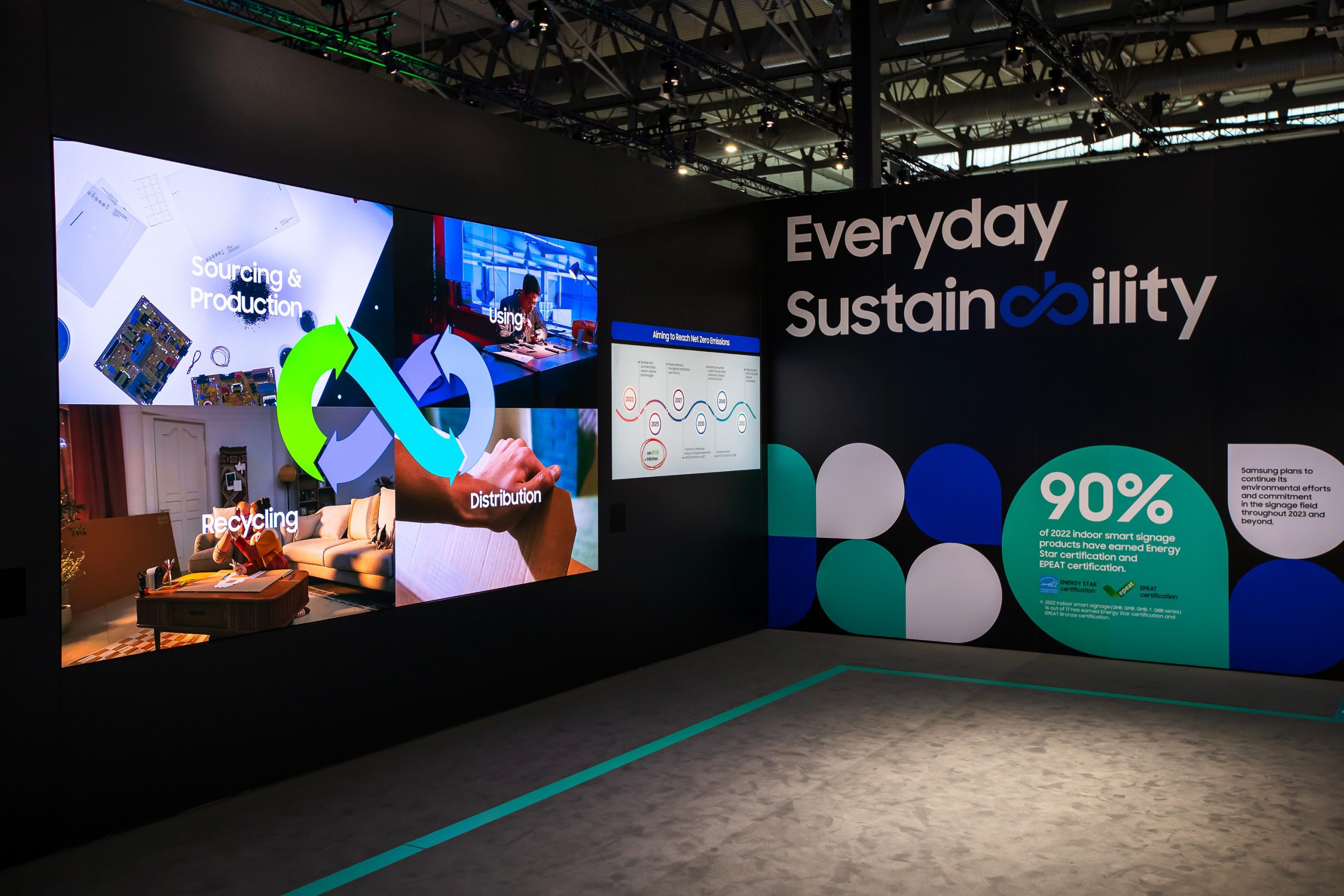Nairobi, Kenya. Samsung Electronics East Africa will next week Monday be switching off lights at their mobile experience stores and select Consumer Electronics stores for 5 minutes from 12 noon to 12:05 pm to mark the global and historic Earth Day as a symbol of their commitment to sustainability.
Earth Day was set up to be marked globally as a commitment to end plastics for the sake of human and planetary health, demanding a 60 percent reduction in the production of ALL plastics by 2040. This year’s theme, Planet vs. Plastics, advocates for widespread awareness of the health risks of plastics, rapid phase-out of all single-use plastics, the urgent push for a strong UN Treaty on Plastic Pollution, and demands an end to fast fashion.[1]
Over the years, Samsung has remained committed to sustainability and securing the earth through the incorporation of recycled materials into all Galaxy products, purposing to eliminate plastic from product packaging by 2025, implementation of zero standby power consumption (below 0.005 watts) for all smartphone chargers by 2025, and achievement of ‘Zero Waste to Landfill’ Platinum Certification for all global business sites by 2025.[2]
Through its various products and releases, Samsung has stayed true to its commitment to sustainability. For instance, the company announced a new Galaxy S24 series, unleashing a new mobile experience with Galaxy AI. Galaxy S24 | S24+ continues to scale the variety of recycled materials in Galaxy devices by applying recycled plastics, glass, and aluminum, and now for the first time, Galaxy S24 | S24+ features components made with recycled cobalt, rare earth elements, and steel. At the same time, Galaxy S24 | S24+ offers seven generations of OS upgrades and seven years of security updates to help users reliably experience the optimized performance of their Galaxy devices for even longer.[3]

For Samsung, the sustainability promises and commitment are not in their smartphones alone but encompasses TVs and displays too. The brand has capitalized on the reduction of product energy consumption, increased use of eco-conscious materials in packaging, increased use of recycled material, accessibility consideration for persons with visual, hearing, and other physical intellectual disabilities, and accessibility consideration for situational disabilities.[4]
With the above and many other inventions, Samsung Electronics has demonstrated a steadfast commitment to sustainability through its multifaceted strategies and initiatives. Integrating eco-friendly practices across its product lifecycle, investing in renewable energy sources, and fostering partnerships for environmental conservation, is commitment enough to drive its sustainability agenda forward.
Through innovative technologies and responsible corporate practices, Samsung sets a benchmark for the industry, showcasing that profitability and environmental stewardship can go hand in hand. As the company continues to evolve and expand its sustainability efforts, it stands as a progress pillar, inspiring others to prioritize sustainability in their operations and contribute to a greener, more sustainable future for all.
-Ends-

